Classic literature is key for young minds, offering insights that last forever. In this guide, we’ll look at the top 10 classic novels for teens. These books are not just old stories; they’re still relevant today. They explore themes that matter, helping teens grow in empathy and critical thinking. Reading these novels, young people gain a deeper understanding of the world. Let’s explore how these classics shape today’s teenagers.
Introduction to Classic Literature for Teens
Classic literature for teens connects the past to the present. It teaches young readers about history and culture. It also shows universal human experiences. Reading classic novels helps teens think deeply about their lives. It helps them grow and think critically.
There are many ways to make classic literature accessible. Adapted versions and study guides help readers of all levels. These works are known for their deep impact on teens. These novels teach important life lessons. They challenge teens to think about their beliefs and choices. Classic literature is still relevant today, offering insights that resonate with teens. Reading these books helps teens understand others better. It sparks discussions about the human experience. It encourages empathy and understanding.
Significance of Classic Novels for Young Readers
Classic novels are key to understanding people and society. They offer more than just stories; they teach emotional intelligence and critical thinking. Through complex characters and plots, readers learn to feel deeply and face tough choices.
Studies show that books are crucial for teens. They improve vocabulary and reading skills. By exploring different stories, teens learn about cultures and grow more empathetic. This is especially important in today’s world. Classic books also teach important values like love, justice, and strength. These themes help teens think about their own beliefs and the world around them. Reading these books makes them more aware and caring citizens.
Top 10 Classic Novels for Teens
Reading classic literature in adolescence can be transformative, offering deep insights, timeless themes, and characters that resonate across generations. Whether it’s the thrill of adventure, the turmoil of coming-of-age, or the challenge of moral choices, classic novels provide teens with perspectives that endure. Here’s a selection of ten classic novels that are not only impactful but also accessible for young readers, making them ideal starting points for exploring literature’s rich legacy.
To Kill a Mockingbird – Harper Lee
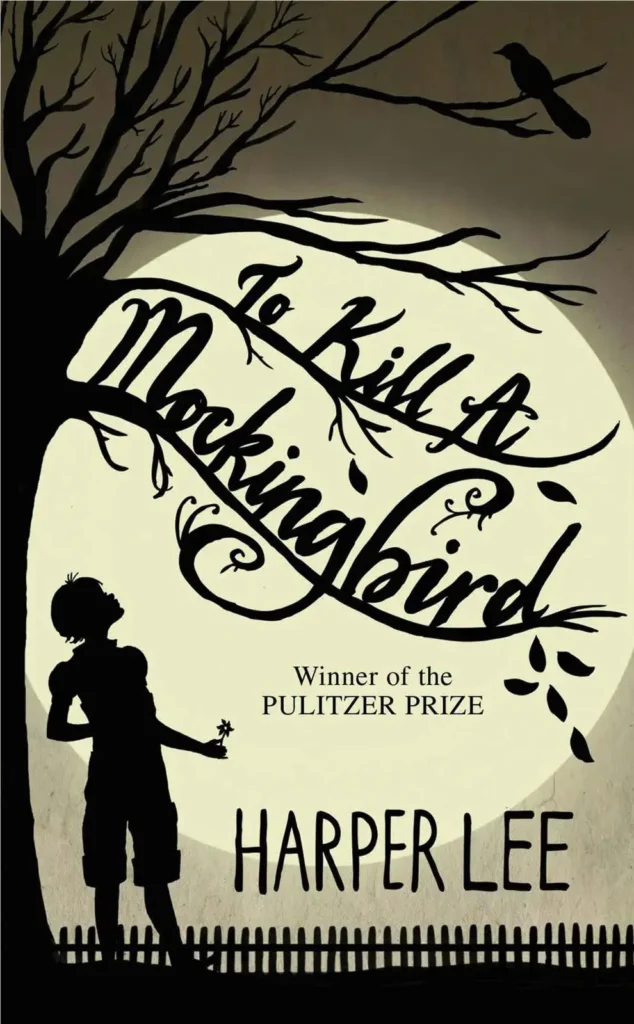
- Synopsis and Setting: Set in 1930s Alabama, To Kill a Mockingbird unfolds through the eyes of Scout Finch, a young girl whose father, Atticus, is a lawyer defending a Black man unjustly accused of raping a white woman. The story dives deep into themes of justice, racial prejudice, and moral integrity.
- Why It Matters for Teens: Scout’s journey is an eye-opener for young readers, presenting ethical challenges that reveal the complexity of human nature. Her father, Atticus Finch, serves as a model of integrity, encouraging readers to consider the importance of standing up for what’s right, even in the face of societal pressures.
- Core Lesson: This novel teaches the value of empathy, integrity, and understanding others’ perspectives, qualities that can shape teens as compassionate and fair-minded adults.
The Catcher in the Rye – J.D. Salinger
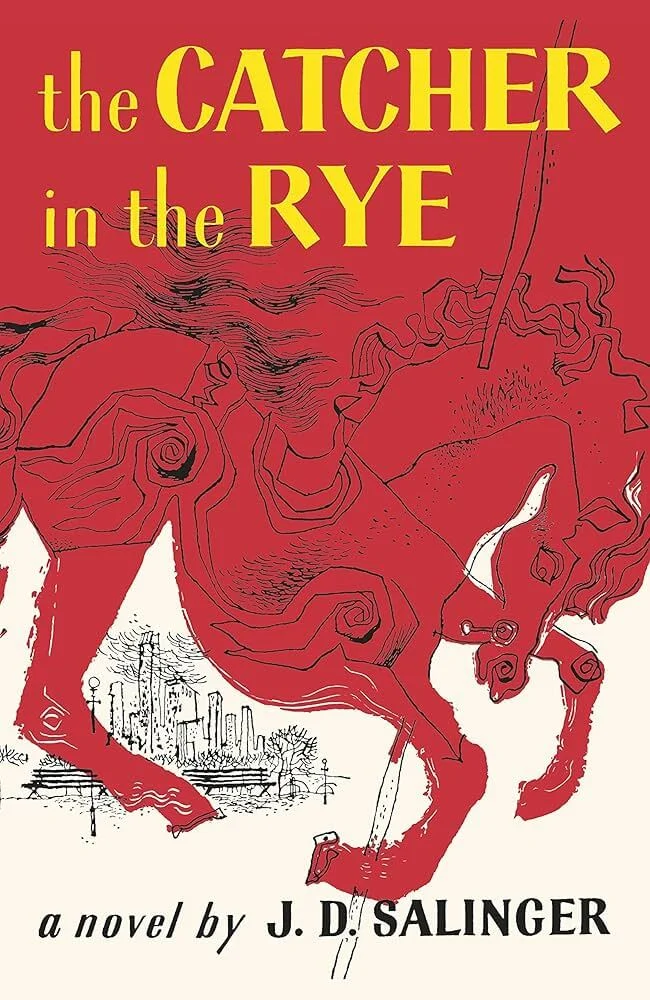
- Synopsis and Character Study: Holden Caulfield, a teenager navigating New York City’s bustling and often overwhelming landscape, wrestles with his disillusionment with society and his search for authenticity in a world that often feels phony.
- Why It Resonates with Teens: Teens find Holden’s angst and frustration relatable, especially during their own search for meaning and identity. Holden’s raw honesty about his feelings makes him a character teens can empathize with as he challenges the superficial values around him.
- Core Lessons: The Catcher in the Rye emphasizes the importance of authenticity, self-discovery, and facing the vulnerabilities of adolescence with honesty.
Pride and Prejudice – Jane Austen
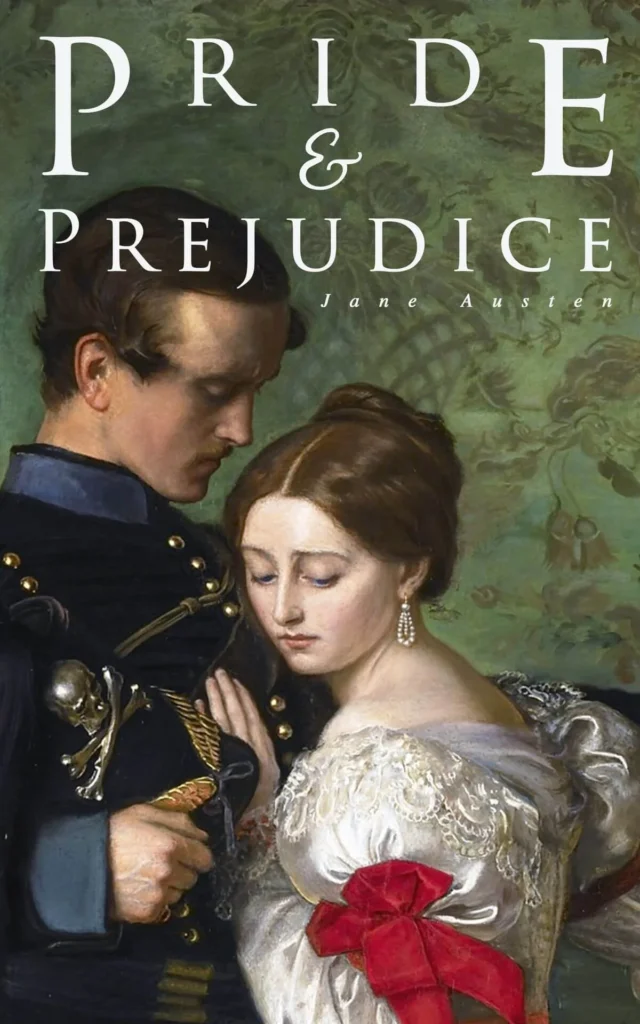
- Synopsis and Themes: This witty novel follows Elizabeth Bennet, a sharp-minded young woman navigating societal expectations, family loyalty, and personal integrity in 19th-century England. Elizabeth acquires knowledge about the perils of pride and prejudice through her connection with Mr. Darcy.
- Why It’s Important for Teens: Austen’s exploration of love, family, and self-respect speaks to young readers learning about relationships. Elizabeth’s independence and strength make her a relatable figure for teens seeking self-respect and self-worth in a social environment filled with expectations.
- Core Lessons:
- The novel teaches readers to see beyond first impressions, value inner character over outward appearances, and hold onto their own values.
The Adventures of Huckleberry Finn – Mark Twain
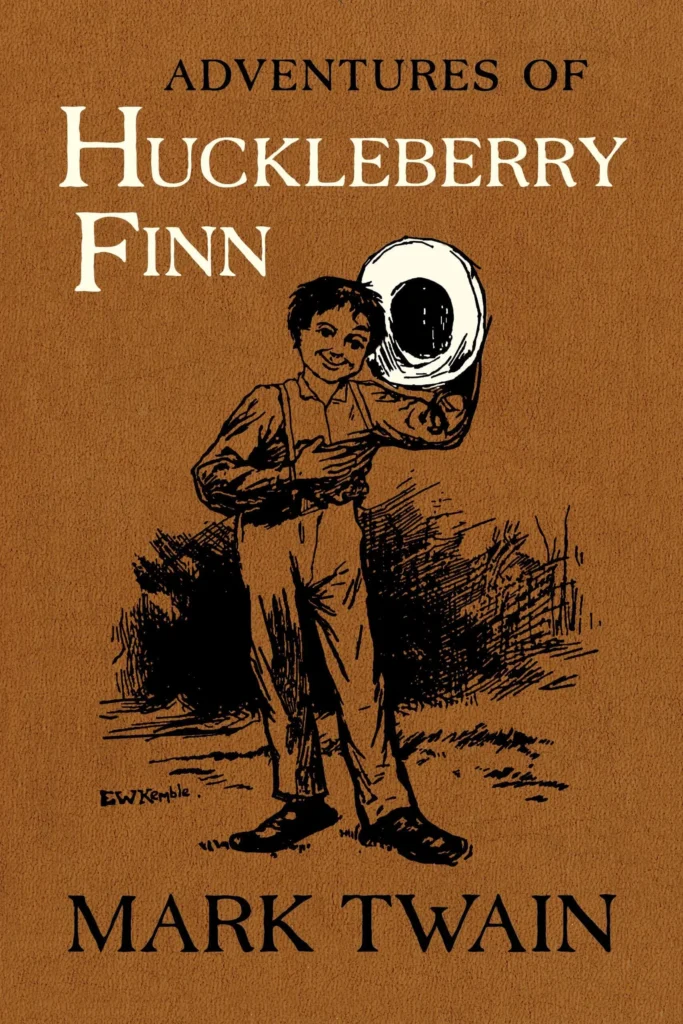
- Synopsis and Journey: Young Huck escapes his troubled home and travels down the Mississippi River with Jim, an enslaved man fleeing for freedom. Their journey is both a thrilling adventure and a deep exploration of friendship and moral values.
- Why It’s Ideal for Teens: Twain’s novel tackles difficult issues of race, class, and freedom, offering teens a perspective on human rights and friendship. Huck’s moral struggles provide a foundation for discussions on right versus wrong, particularly when societal norms conflict with personal ethics.
- Core Lessons:
- The novel encourages teens to question societal standards, stand by their convictions, and respect human dignity and friendship.
1984 – George Orwell
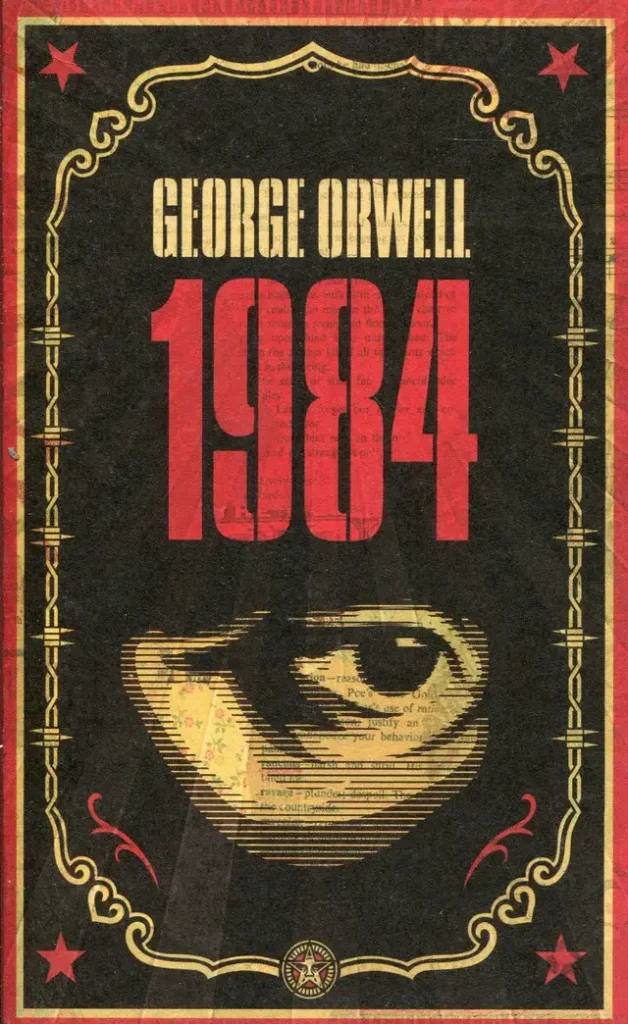
- Synopsis and Themes: In a dystopian world of surveillance and control, Winston Smith dares to question the all-encompassing power of “Big Brother.” His rebellion symbolizes the struggle for individuality in a conformist society.
- Why It Appeals to Teens: With its exploration of free thought, identity, and personal freedom, 1984 is an intriguing, if dark, look at the risks of complacency. Teens can relate to Winston’s fight for freedom, and it prompts discussions on the importance of truth and individual rights.
- Core Lessons: This novel encourages readers to value freedom of thought, understand the consequences of authoritarianism, and nurture their critical thinking skills.
Little Women – Louisa May Alcott
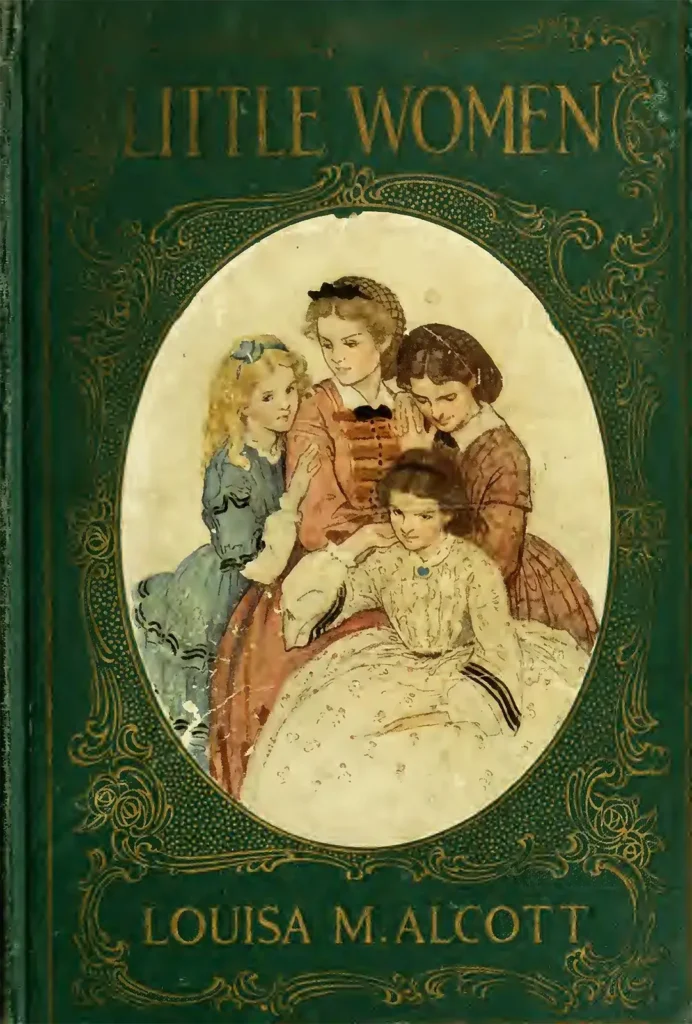
- Synopsis and Character Analysis: Little Women chronicles the lives of the four March sisters—Jo, Meg, Beth, and Amy—as they grow up, each facing unique challenges and dreams during the Civil War era.
- Why It’s Perfect for Teens: Each sister represents different aspirations, allowing teens to connect with their individual struggles and ambitions. Jo March, in particular, stands out as a determined character who values her independence, inspiring young readers to pursue their own paths.
- Core Lessons: Through its portrayal of family, resilience, and self-identity, Little Women reminds readers of the importance of personal growth, empathy, and perseverance.
Fahrenheit 451 – Ray Bradbury
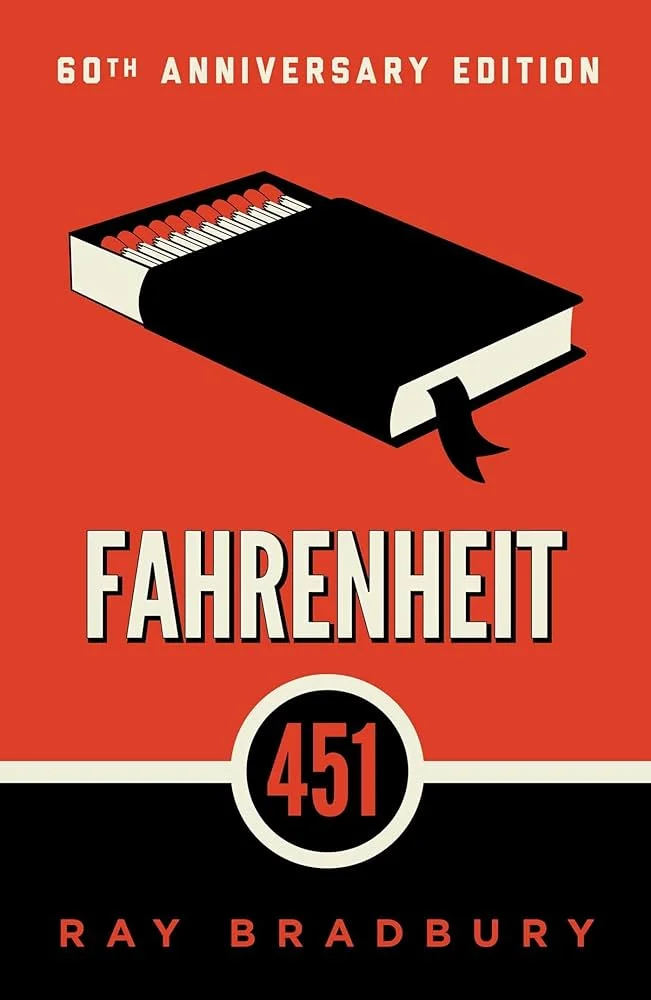
- Synopsis and Setting: In Bradbury’s dystopian future, “firemen” burn books to suppress knowledge and independent thought. Guy Montag, one of these firemen, gradually realizes the value of literature and freedom.
- Why It’s Engaging for Teens: Bradbury’s novel is a cautionary tale about censorship and the loss of intellectual freedom. It challenges young readers to consider the value of knowledge and self-expression, particularly in a digital age of curated information.
- Core Lessons: Fahrenheit 451 champions the importance of independent thought, curiosity, and the dangers of complacency.
The Outsiders – S.E. Hinton
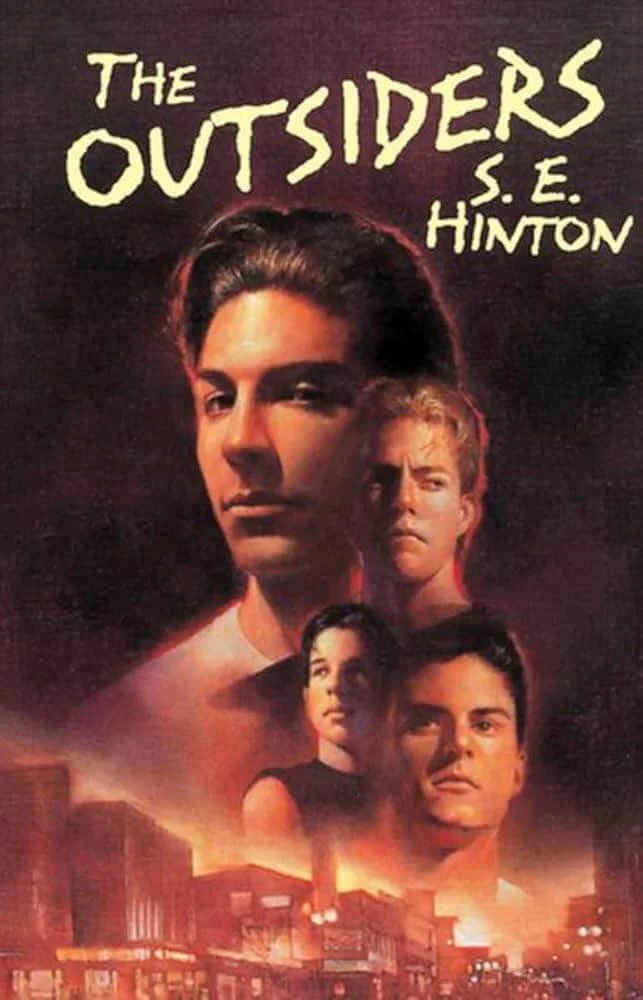
- Synopsis and Background: This story centers on Ponyboy Curtis and his gang of “Greasers” as they navigate class struggles, friendship, and loyalty in a tough environment. Writing the book as a teenage S.E. Hinton gives the story a genuine adolescent voice.
- Why It Speaks to Teens: Hinton’s portrayal of class divides, and teen relationships is timeless. Young readers can easily relate to Ponyboy’s desire to fit in while remaining true to himself. The bonds of friendship, loyalty, and family in the face of adversity resonate with teens.
- Core Lessons: The Outsiders emphasizes empathy across social divides and staying true to oneself amid external pressures.
The Diary of a Young Girl – Anne Frank
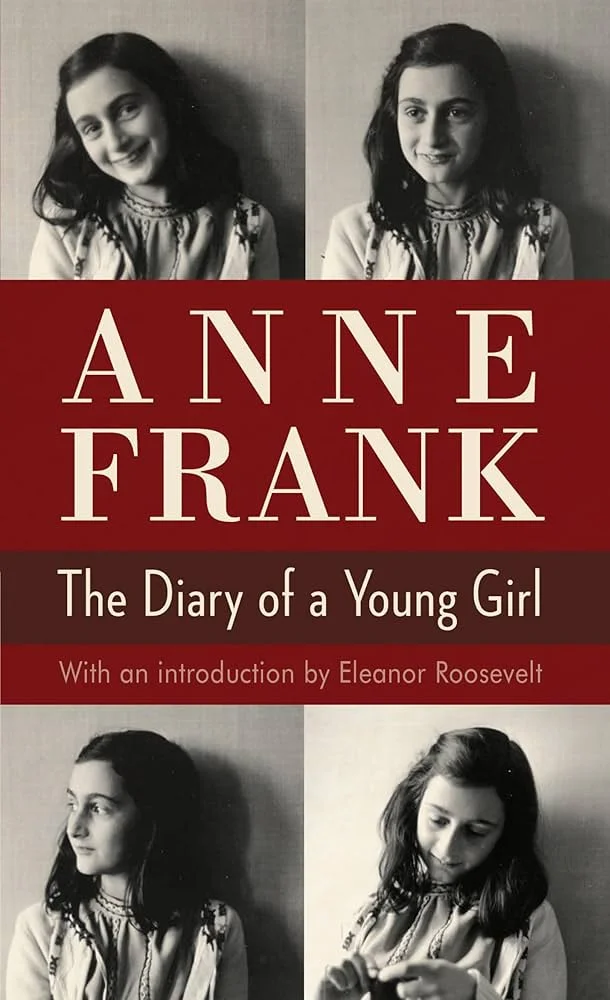
- Synopsis and Context: Anne Frank’s thoughts while evading the Nazis during World War II are captured in this insightful diary. Her words reveal her resilience, optimism, and deep insights despite living through a tragic period.
- Why It’s Impactful for Teens: Anne’s candid reflections on friendship, love, and dreams resonate with young readers. Her ability to remain hopeful and compassionate is both inspiring and a powerful reminder of the human capacity for resilience.
- Core Lessons: Even in the darkest times of life, Anne’s journal emphasizes the need of kindness, tolerance, and hope.
The Lord of the Flies – William Golding
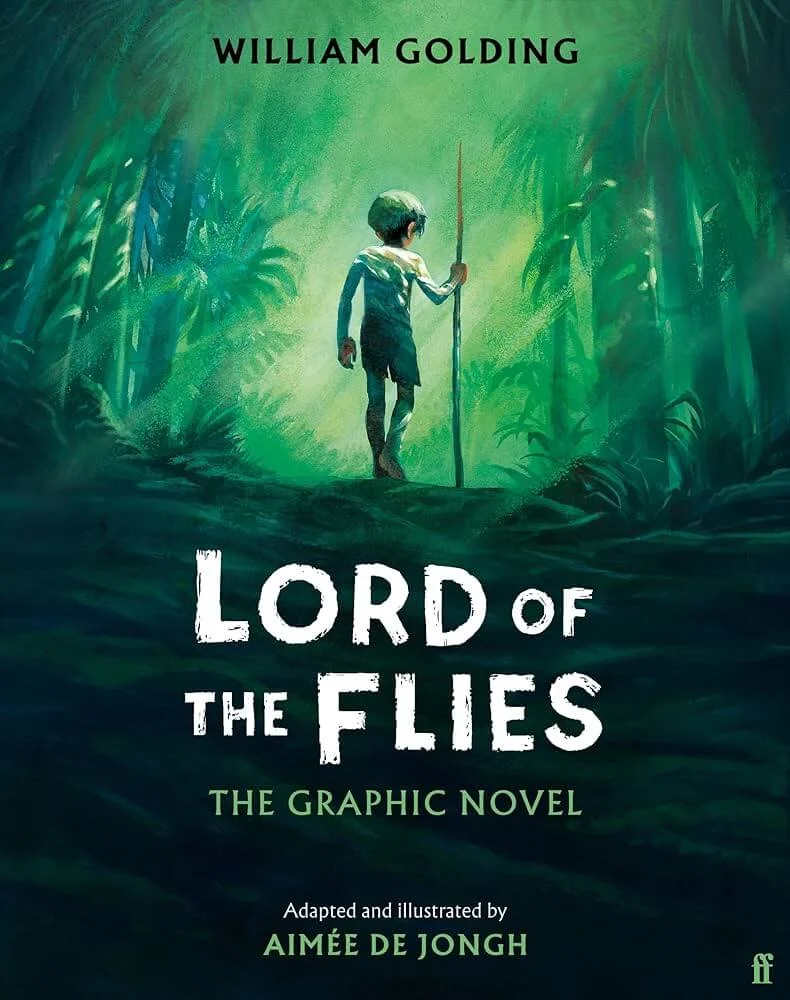
- Synopsis and Themes: A group of boys stranded on an island attempts to govern themselves but quickly descends into savagery. The novel is a stark exploration of human nature, power, and morality.
- Why It Engages Teens: Golding’s story forces teens to consider what happens when social order collapses, raising questions about morality, leadership, and human nature. The intense narrative captivates readers and serves as an eye-opener to the complexities of authority and group dynamics.
- Core Lessons: The Lord of the Flies teaches about the delicate balance between civilization and chaos, encouraging readers to think critically about the values that hold societies together.
How Classic Novels Encourage Critical Thinking
Classic novels are great for teaching critical thinking. They use storytelling techniques to make readers think deeply. By analyzing these stories, readers learn to think critically, which helps in many areas of life.
Analyzing Storytelling Techniques
Looking into classic novels’ storytelling, like character development and symbolism, shows their artistry. For example, understanding a character’s reasons can reveal complex themes. Authors use symbols to share deeper messages, asking readers to find these meanings. These elements push readers to think deeply, helping them develop analytical skills. This mindset is useful for reflection and analysis.
Discussion Points for Readers
Starting discussions about classic novels helps readers understand them better. Thoughtful questions can spark interesting conversations. Here are some ideas for discussion points:
- What moral dilemmas do characters face, and how do their choices reflect broader issues?
- How does the narrative structure influence our perception of events and characters?
- What symbols recur throughout the text, and what themes do they represent?
- How do the characters’ journeys resonate with contemporary challenges faced by teens?
Through these talks, readers can dive deeper into the stories. They learn to think critically about literature and its connection to their lives.
Engaging Ways to Introduce Teens to Classic Literature
Introducing classic literature to teens can be very rewarding. It lets them connect with timeless themes and characters. Using creative methods can help them appreciate these works more, making reading fun and meaningful.
Book Clubs and Reading Groups
Book clubs for teens are great for socializing and discussing books. They offer a place for young readers to share their thoughts on classic novels. By having structured meetings, everyone gets a chance to lead the discussion. Topics can range from character development to key themes. This makes the literature more relatable to teens.
“Reading is not just about understanding words, it’s about connecting with stories.”
Online Resources and Communities
Technology has brought online reading communities to the forefront. Websites and forums focused on classic literature are perfect for discussion and sharing ideas. Virtual book clubs allow teens to participate from anywhere, breaking down barriers. These platforms are great for connecting with others who love reading. They provide a supportive space for exploring classic texts together.
Conclusion
The value of reading classics is huge. These timeless stories not only entertain but also make young readers think deeply. They learn about different cultures and historical times, gaining insights into the human experience. Reading classics helps teens grow and discover themselves. It inspires a love for literature, teaching them to appreciate language and see things from different viewpoints.
This is crucial for a new generation to engage with written texts. Classic literature is more than just fun to read. It teaches life lessons and offers cultural insights. As teens explore these stories, they gain skills that will help them in many areas of life.

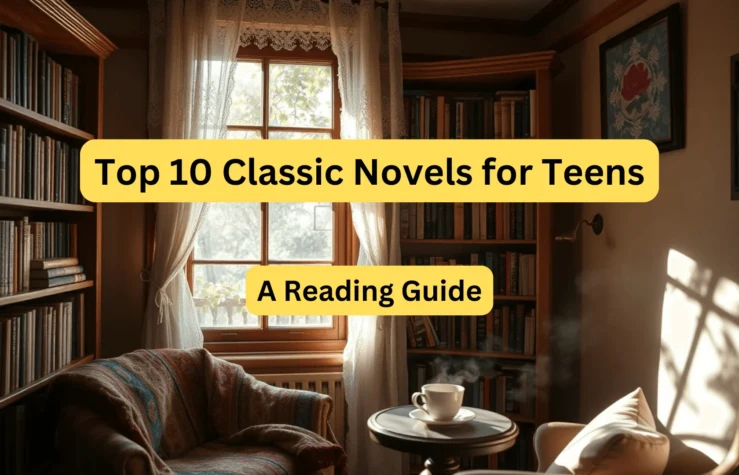
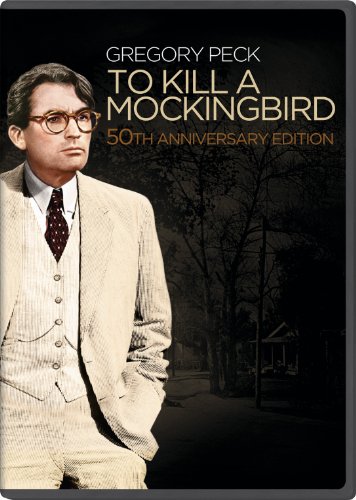


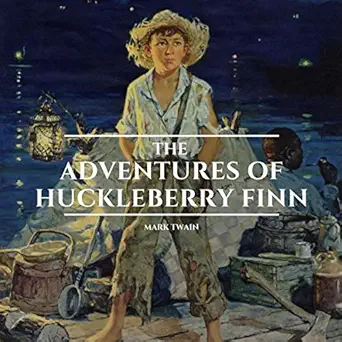
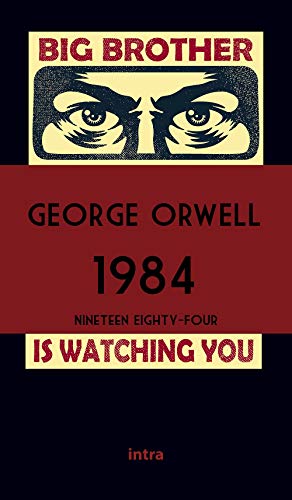





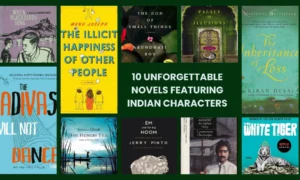
[…] Gujarati cinema, where he enjoyed parallel stardom, Asrani played lead roles from 1972 to 1984 and character roles from 1985 to 2012. His 1974 Gujarati film Amdavad No […]
[…] story of identity and relocation. Set in the misty hills of Kalimpong, the story follows Sai, a young girl, and her grandfather’s cook, whose son, Biju, grapples with life as an immigrant in […]